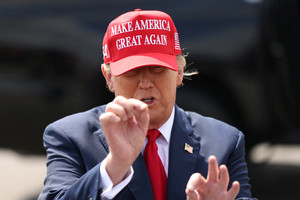Mismatch – a real solution for dialogue across divides

Did you ever receive direct instruction on how to have a productive conversation in school?
As a student, I was the beneficiary of rigorous writing instruction and learned the heck out of World History and Government (thank you, Mrs. DeMelo). But I didn’t learn active listening, critically understanding another point of view, and improving my own argument until after my school days were over.
Students growing up in today’s world need to be able to have constructive dialogue with people who are different from them, especially in today’s climate. If you are lucky, you got this through participating in a strong Debate Team. But only 15% of the country’s high schools have a debate program. An even smaller portion have the opportunity to travel outside of their neighborhood to engage with people they would have never met in their own community.
This is where Mismatch comes in.
Back in 2019, AllSides launched a pilot of Mismatch. At first, AllSides was solely focused on helping people break free from their information filter bubbles. But we realized this was only one component of the issue of polarization. AllSides, along with seasoned dialogue experts at Living Room Conversations, decided to do something to help people break out of relationship bubbles.
Mismatch is a platform for educators to seamlessly schedule conversations with a classroom different than their own. Differences come in all forms — ideological, racial, economical, geographical. Using Mismatch, educators can match their schedule with another classroom and receive a conversation guide from Living Room Conversations to help direct the students’ discussion.
Mismatch exposes students, who may not otherwise get to travel outside of their community, to different beliefs, perspectives, and ways of life and teaches them to approach such differences with listening and curiosity.
AllSides piloted Mismatch with just under 1,000 students. The results were tremendous.
But internet access was a major hurdle during the 2019 Mismatch pilot. Post-COVID, US public schools are positioned better than ever for video conference connection after $7+ billion of investment through the federal Emergency Connectivity Fund. Additionally, there is a groundswell of support for civic learning in the U.S. Ten states have passed mandatory standards for civic learning and four more are currently considering it. Teachers are looking for effective tools to meet these expectations and communities are looking for solutions to polarization.
We recognized in 2023 that now is the time to relaunch Mismatch after a COVID pause, so we rebuilt the platform. Since our soft launch in December, 25+ classrooms in 16 states have signed up. We plan to ramp up to 1,000 conversations per year across 2,000 classrooms – touching 8.5% of all secondary schools in the U.S. – all while remaining cheaper than a field trip for a classroom.
This week we released a major upgrade to how users input their classroom’s availability. Now teachers can more easily than ever input their schedule into Mismatch and find a match.
Any classrooms that sign-up between now and the end of the school year can use the code EARLYADOPTERS for a free conversation.
Check it out at mismatch.org.
Alice Sheehan (Center Bias), Director of Mismatch.

May 2nd, 2024

May 1st, 2024

May 1st, 2024

April 29th, 2024